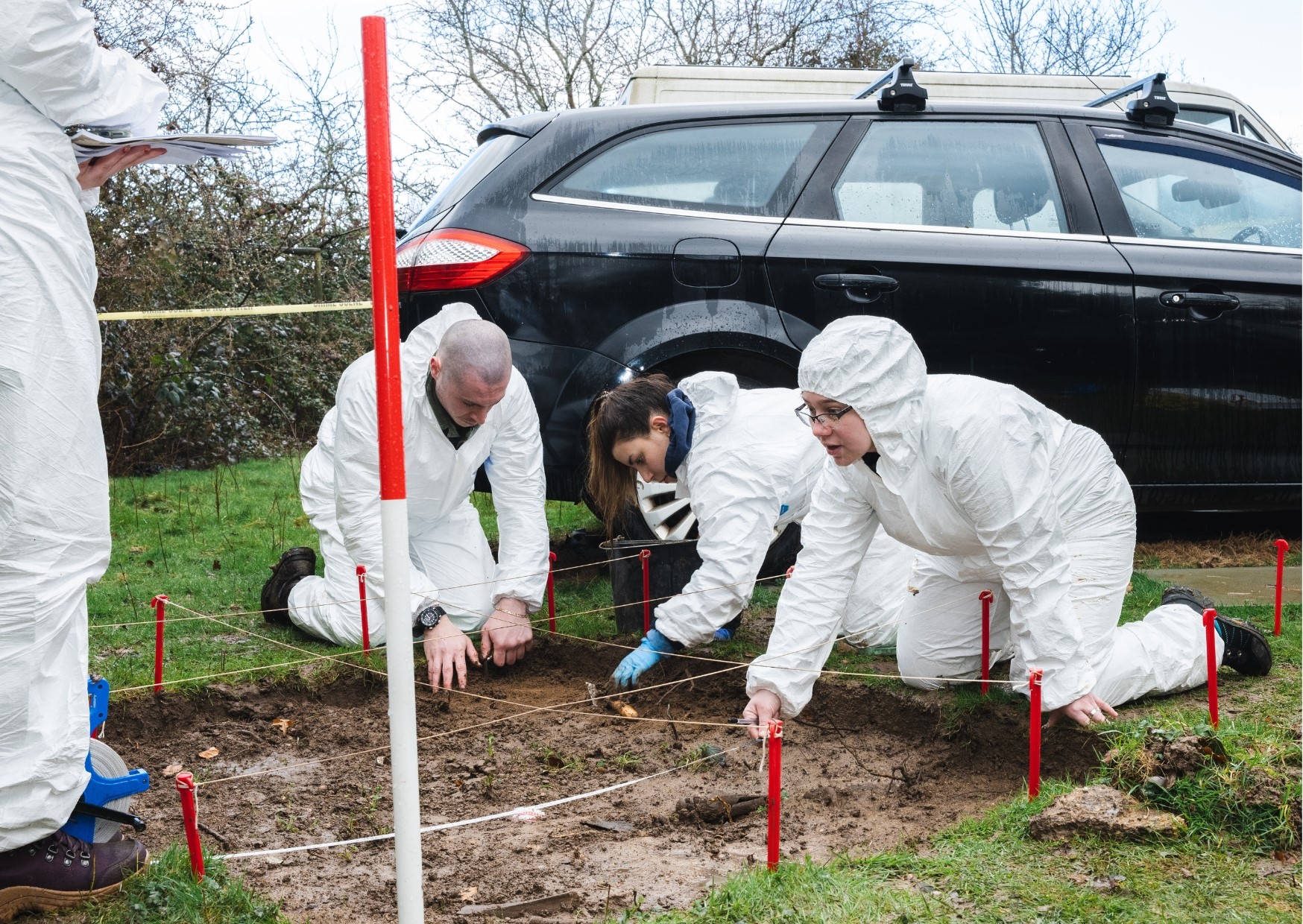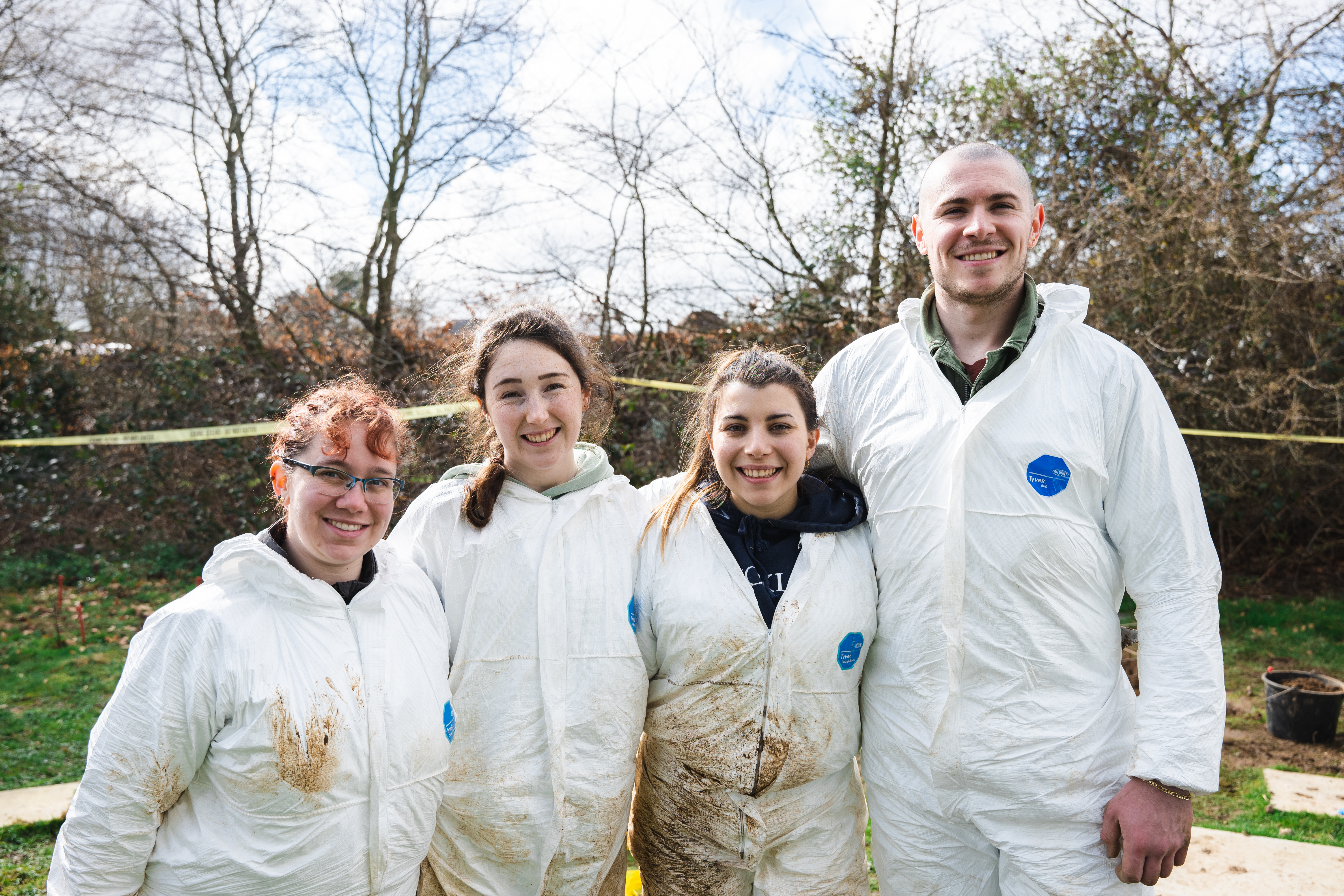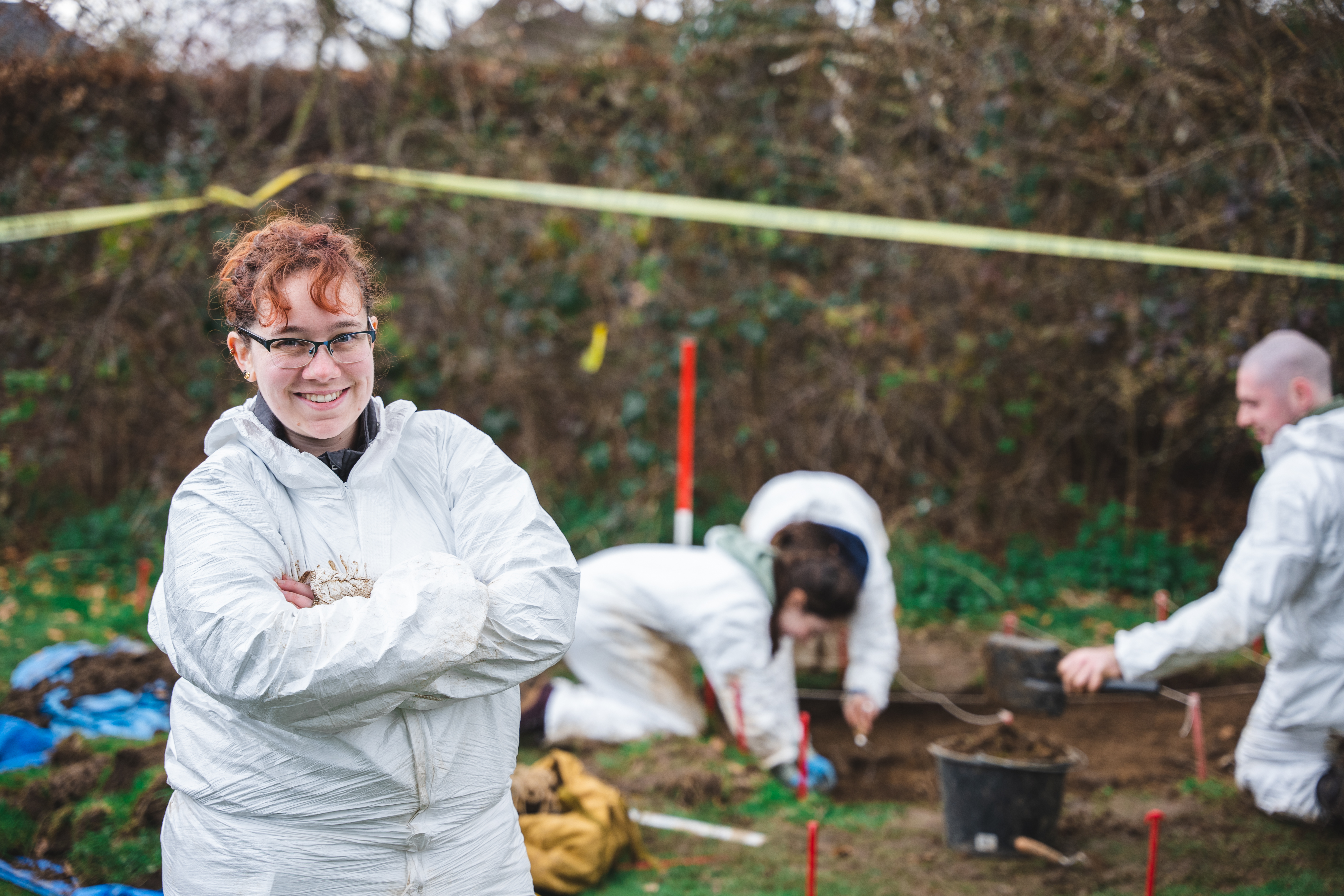MSc students on our Forensic Osteology explore the challenges of mass disasters, burials and skeletal diseases through different scientific approaches and benefit from our active research culture. This two day excavation is an exercise for them to develop the practical skills required to excavate and analyse human remains in the field. Student Alannah O’Shea gives us a debrief.
How does a practical work?
This particular lab practical was on campus at the West Oast House. It consisted of two eight-hour days. It was a team exercise but the same group both days.We knew ahead of time who was in our group and we had to show up at the site at least 10 minutes early so we could get started right on time. Each team was assigned a mock grave site in the property and then we applied everything we had learned in the course to determine where the grave was, to start the excavation and to find and log all the evidence we found.

How are you taught the methods beforehand?
Weekly lab practical’s are all part of a course in the program, but we also got weekly readings -they provided a lot of tips and tricks that our group made use of.
Did you find everything you needed to? What was it?!
Yes, we found all the bones and a bunch of evidence in our grave. I don’t want to reveal too much for future students but it’s very exciting to find evidence when you’ve learned so much in class.
How did the conditions on the day/site effect the outcome?
It was really rainy on both days of the excavation! This made it very muddy and made some things, like finding different layers and keeping the grave edges, very difficult. However, that was something to talk about in the write up, so that worked out.
How successful do you think the exercise is at replicating a real-life scenario?
This exercise was meant to emulate real life scenarios and I feel like it has done that. We had to examine a mock crime scene from first arrival all the way to refill and post-excavation, in-lab assessment. The professors were also there to evaluate us, not give advice, so we really had to rely on our own skills.

In terms of visions for your future careers, how will this qualification enhance it?
I want to do something in Osteology, I don’t have a specific career in mind because I want to keep an open mind. That being said, there are other programs I was interested insuch as bioarchaeology but I thought this MSc would provide me with the more specific knowledge and information I was interested in, that can be applicable in many careers and countries. This programme has given me the necessary well-rounded knowledge base as well as practical experience.
Alannah O’Shea is studying for an MSc in Forensic Osteology and Field Recovery Methods.

